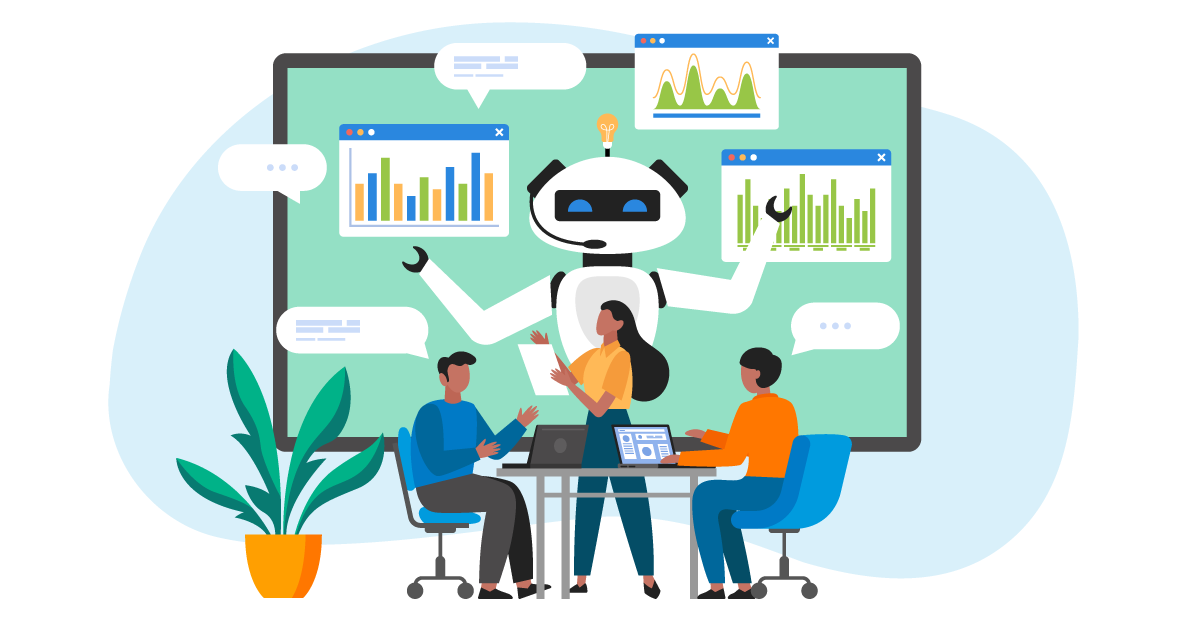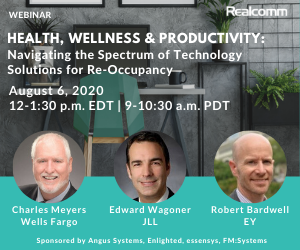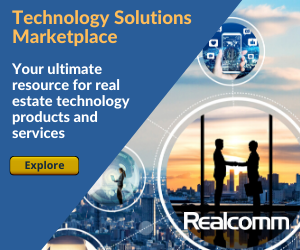Enterprise Management with a Modern Digital Workplace
-01-RF.jpg)
During my 30+ years in real estate, few, if any, innovations have so fundamentally transformed and improved how I work as the Modern Digital Workplace (MDW). The MDW I am referring to isnít a physical office where employees gather. Rather, itís a collection of tools and ways of working that utilize social collaboration techniques to turn any place with an internet connection into a place where a team member has 24/7/365 access to a firmís technology, knowledge, human talent and more for producing quality work with unprecedented efficiency.
The MDW is built on the Microsoft 365 (M365) ecosystem and includes Teams, SharePoint, Yammer, Stream Video and other productivity tools. Teams, the centerpiece, is a single, unified platform for communication and collaboration that provides one-on-one and group chat, video conferencing, document collaboration, curation and effective exchange of organizational knowledge. Teams lets people work from anywhere and provides timely knowledge sharing and collaboration. They can talk through issues and questions on projects, jointly revise documents and share insights from the latest news coverage or industry reports.
As a senior executive at Real Foundations (RF), I can easily - in real time, when itís convenient and wherever I am - leverage nearly all of RF's vast resources to oversee our 400-person, global company and ensure consistent delivery of services to the world's leading real estate companies. And a majority of the time, I do it all through my smartphone. Here's how the MDW enables me to manage the business:
1. Stay fully informed in less time. With employees on four continents serving an international client base, I have a lot to keep up with, so I start and end every day perusing Teams and Yammer. Teams affords visibility into what everyone's working on and discussing, along with project status updates. Additionally, I can quickly see what's happening with our workforce and business in Asia, Europe, India and Australia, given our culture of working out loud. Yammer is our "virtual water cooler" for informal information and knowledge-sharing via hundreds of groups with threaded discussions on current topics. I focus on about 50 enduring groups (or communities) into which practitioners are consistently feeding information, so I stay up to speed on the latest real estate news, large capital events, PropTech, industry conferences, trends by sector and market updates.
2. Understand project status for active management. When I play a role on select client engagements, I regularly check on colleagues' postings - threaded conversations, documents, graphs and charts, graphics, proposals, etc. I can very efficiently monitor progress, offer perspective, request clarification and advise without having to chase anyone down or wait on responses to my queries.
3. Stir the pot. Because Teams instantly provides transparency into work and discussions, I can jump into conversations I might not otherwise be aware of in a traditional office environment. I can rapidly detect anything that's "not quite right," e.g., insufficient information or context, narrow perspectives or sub-optimal articulation, and immediately interject by asking questions that push co-workers to think harder or more creatively, even take a different approach.
4. Provide just-in-time guidance. Beyond stirring the pot, sometimes I'll intervene to keep projects on track before a team expends time and energy going down the wrong path. Recently, during a routine Teams check-in, I saw a group conversation on a project but wasn't onboard with some of the discussion. I promptly redirected the conversation and the work. In a legacy work environment, I wouldn't have caught and corrected the problem until much later, which is inefficient.
5. Better manage internal operations. I (and RF's other senior practitioners) can manage nearly all routine company operations and functions within the MDW infrastructure. This includes executing strategy, developing business, cultivating talent, leveraging market research, handling contractual agreements and prioritizing investments in industry organizations. The solution also gives us unmatched agility when extraordinary needs arise. When the COVID-19 pandemic first struck, we needed to mobilize employees in our Chennai support center to work from home. Through video calls, Teams conversations and planning and executing within this environment, we set up everyone to work remotely within 30 hours.
6. Execute work collaboratively. Wherever I am, if I have my laptop, smartphone and/or tablet and an internet connection, I can contribute in real-time to work product. A colleague seeking my input or approval sends a link to a document, I click to open it and then add comments or revisions. My feedback is automatically saved, with my and all previous versions preserved, and the co-worker is alerted.
7. Quickly locate information and experts. RF has extensive institutional knowledge that employees can leverage for internal and external projects. But itís spread throughout our organization in hundreds of thousands of documents, conversations and chats, recorded meetings, video tutorials, charts and graphs, wikis and anecdotal content. We also have subject matter experts (SMEs) on every topic. But I can't always recall where the information is or who said what on a subject. With our MDW's robust search tools (Search, Bing and, soon, Project Cortex), I can find it all with a few mouse clicks.
8. Connect the dots. By spending time in Yammer, Teams and video meetings, I'm aware of what's happening company- and industry-wide. I know what people are working on and their expertise, so I can easily figure out when to connect colleagues to advance the firm's business. I can: help associates find the right people to answer the myriad questions posted daily; identify the best staff for projects; pull together the right information for business development; and match SMEs with junior associates for mentoring.
9. Mine new revenue opportunities. Thanks to Yammer and Teams, I'm well-informed of industry developments, trends and evolving marketplace needs which keeps me thinking about new business opportunities. For example, we track all large real estate-related capital events, such as M&A and large portfolio transactions, and contact the companies involved to describe services that can help them best navigate these changes.
10. Build a connected organization. A Modern Digital Workplace helps build a more connected, efficient and productive organization. Everyone is empowered to work, collaborate and tap into the firm's resources and intellectual capital anytime and anywhere there's an internet connection. This connectedness is how we work and deeply woven into RFís culture. We measure employees' engagement with the Digital Workplace using SWOOP and TyGraph. These metrics are important factors in everyone's performance review.
It's possible to create a collaborative digital workplace using the many Microsoft tools that are already licensed - but following a structured, proven approach when designing the environment should be top of mind.
This Week’s Sponsor
RealFoundations is a global professional services firm focused on helping companies that develop, own, operate, service, occupy or invest in real estate make smarter, more profitable decisions. From the building itself to the way itís developed, operated and capitalized, no firm understands the inner workings of the entire real estate ecosystem as well as RealFoundations. We Make Real Estate Run Better. www.realfoundations.net
Read Next
 5/29/2025
5/29/2025
AI Canít Fix Bad Data. These Ideas Can Get You on the Right Track. Real estate visionaries constantly integrate innovative technology to make their organizations more efficient.
 5/22/2025
5/22/2025
Managing Building Automation and Integration Like an Investment Portfolio What if your building automation and integration decisions were managed with the same precision, discipline, and long-term vision as Warren Buffettís investment portfolio?
 5/15/2025
5/15/2025
Tech, Talent and Transformation: 2025 Digie Finalists Announced For 27 years, Realcomm has presented the Digie Awards to acknowledge companies, real estate projects, technologies, and individuals that have advanced the commercial real estate industry through the strategic use of technology, automation, and innovation.
 5/15/2025
5/15/2025
Empowering Space Management with Data-Driven Visualization For effective CRE space management, itís critical to centralize lease data, maximize rental square footage (RSF), improve energy efficiency and reconfigure spaces to meet changing needs.









%20(1)%20(1)%20(1).png)
-FINAL-RF0723.jpg)


